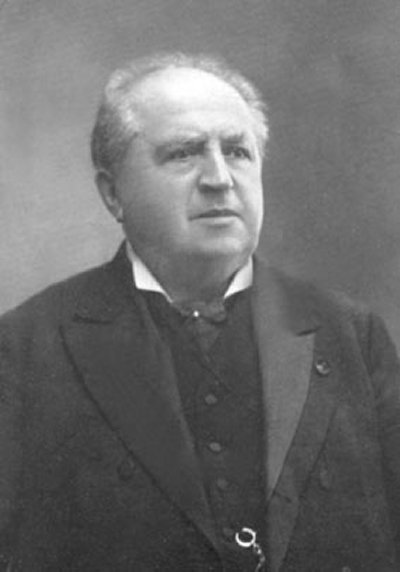 Abraham Kuyper is among my favorites of the Dutch Calvinists. Here's a selection from his Encyclopedia of Sacred Theology on Melchizedek.
Abraham Kuyper is among my favorites of the Dutch Calvinists. Here's a selection from his Encyclopedia of Sacred Theology on Melchizedek.
63. Falsifications of the Conception of Theology
The falsifications of Theology as science bear an entirely different character. By these we do not refer to the heretical divergencies, such as Protestants assert of Romanism, and Rome in turn affirms of Protestantism. With every heretical divergence both sides occupy the same point of view as to natural theology; from both sides it is confessed that their theology is derived from special Revelation; and the difference arises only from the diverging views of this special Revelation. In speculative and empiric theology, on the other hand, one is met by a falsification, which, from principle, denies all special Revelation, and thus in reality takes counsel with natural theology. Both forfeit thereby the right to the name of theology, because in this way speculative theology really ends in Philosophy, and empiric theology disappears in Naturalism. Natural Theology can exhibit itself as a regnant power only when human nature receives the beams of its light in their purity and reflects them equally completely. At present, however, the glass has been impaired by a hundred cracks, and the receiving and reflecting have become unequal, and the image that was to reflect itself is hindered in its clear reflection and thereby rendered untrue. And for this reason you cannot depend upon natural theology as it works in fallen man; and its imperfect lines and forms bring you, through the broken image, in touch with the reality of the infinite, only when an accidens enables you to recover this defective ideal for yourself, and natural theology [216] receives this accidens only in special revelation. Speculative and empiric theology are correct, therefore, in their reaction against methodistic superficiality, which actually annuls natural theology, and accepts special revelation by faith as something entirely independent by itself. While, on the contrary, it is only by the natural knowledge of God, by the semen religionis, that a special revelation is possible for us, that our consciousness can unite itself to it, and that certainty can be born of its reality in our sense. Yea, to speak still stronger, we may say that special theology is merely temporal, and natural theology eternal. This is not stated more boldly than the Scriptures justify, when they explain the mutual relation between the special priesthood of the Aaronic ceremonial and the natural priesthood of Melchizedek. Melchizedek appears as one standing entirely outside of the special revelation; he is a priest-king, who has natural theology only, together with a weakened tradition of the once blessed paradise. Aaron, therefore, on whom shone the full light of special revelation, stands far above him in knowledge of God, in loftiness of religion, and in purity of priestly ritual. With a little less thought one would have been tempted to place Aaron’s priesthood far above that of Melchizedek, in order to find the ideal highpriesthood of Christ in Aaron, and not in the order of Melchizedek. And yet revelation, in both Old and New Testaments, teaches the very contrary. Aaron’s ceremonial bears merely a temporal character; Melchizedek’s office is eternal; and Aaron disappears in Christ, in order that in Christ Melchizedek may reappear. Thus Aaron’s service merely fulfilled the vocation of rendering the service of Melchizedek possible again, and enabling it to resume its original significance. And this is the point of view which dominates also the relation between “natural theology” and “particular grace.” Undoubtedly the content of special revelation is much richer than the meager content which natural theology now offers fallen man; and it is also evident that without its accidens in special revelation this natural theology is no help to you whatever. Aaron’s service was much richer than that of Melchizedek, and without the Aaronic ordination Melchizedek’s offering missed every atoning merit. But this does not take away the fact, that natural theology always remains the originally real one, and that special revelation can never be anything else than accidental. Hence, when it comes to a state of purity, when sin shall have been eradicated so that its very memory shall no longer work its after-effects in the creation of God, then all the riches of special revelation shall merely have served the end of bringing natural theology back again to its original luster, yea, of causing it to glow with a brightness which far excels its original luster. In the prophetic domain of the knowledge of God, also, Aaron disappears, and Melchizedek returns with all the glory of the original creation. This is the deep significance of the oath sworn by the Lord in Psalm cx., concerning the priest after the order of Melchizedek. Jesus Himself spoke of a future in which His disciples would no more ask Him anything, because the Father Himself loved them. And in the [217] perspective of 1 Cor. xv., when God shall be “all in all,” the entire special revelation has receded; the object for which it was given has been obtained; and with reference also to the knowledge of God, the “all in all” expresses nothing else than what once existed in paradise.
pg 215-217, Abraham Kuyper, Encyclopedia of Sacred Theology



Leave a comment